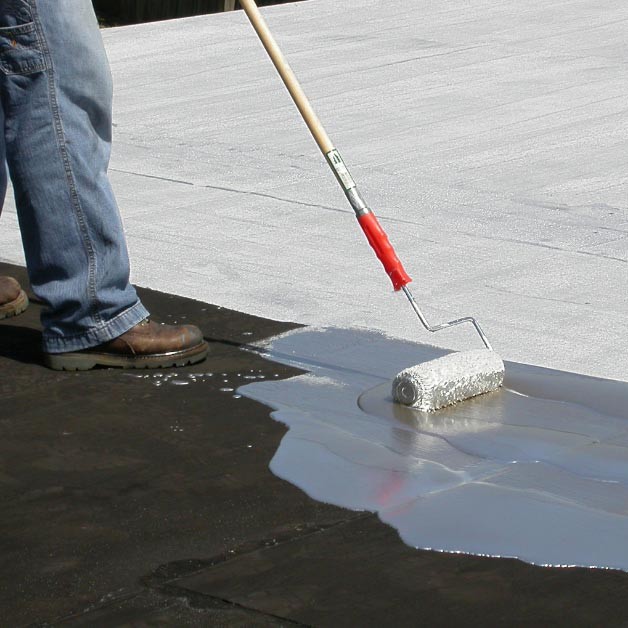Waterproofing is often an neglected aspect of residential and construction maintenance, yet its significance cannot be emphasized enough. For property owners and building supervisors alike, understanding the importance of waterproofing is essential to guaranteeing the durability and endurance of structures. From avoiding costly moisture issues to mitigating mold formation, effective waterproofing strategies serve a pivotal role in protecting your property. This piece will investigate the various facets of waterproofing, emphasizing why it is imperative for all home and building.
As we explore the world of waterproofing, we will dive into the comprehensive guide to what you need to know, from identifying signs your property needs immediate care to common myths that need debunking. Whether you are thinking about DIY techniques or hiring a professional, understanding the costs and benefits of waterproofing can save you a lot in potential fixes. Join us as we discover the various aspects of waterproofing and determine whether the cost is truly justifiable for your real estate.
Importance of Waterproofing
Applying waterproofing techniques is an essential aspect of maintaining the integrity and lifespan of your home or edifice. It serves as a defense against humidity, preventing water from infiltrating into buildings where it can cause serious harm. This is particularly important in areas prone to heavy rainfall or water accumulation. Not only does waterproofing safeguard from liquid damage, but it also boosts the strength of building materials used in building, ultimately preserving your asset.
Ignoring the requirement for waterproofing can lead to a range of difficulties, including mold growth, damage to the structure, and increased repair costs. Ingress of water can compromise foundations and create unhealthy habitats due to moist conditions. By actively waterproofing your property, you can avoid these costly repairs and ensure a healthy and habitable environment for your loved ones or occupants.

In addition to stopping damage, waterproofing can also boost the efficiency of energy usage in buildings. By sealing out moisture, you lessen the likelihood of heat loss and can achieve a uniform indoor climate. This not only contributes to a more comfortable living space but also results in lower energy bills, making waterproofing not just a safeguard, but also a cost-effective choice.
Cost-Benefit Assessment of Waterproofing
Investing in moisture proofing can feel intimidating at first sight, particularly when homeowners consider the upfront costs. However, the prolonged savings associated with waterproofing generally surpass these upfront expenses. For instance, properties that are properly waterproofed are not as likely to experience from water damage, mold, and building deterioration. By preventing these issues, homeowners can dodge costly repairs and save thousands of dollars in restoration and renovation work that may be necessary for a ignored property.
The benefits of waterproofing go beyond just cost savings. Numerous homeowners discover that moisture-proofed spaces contribute positively to their overall well-being and property value. For instance, a dry and well-maintained basement not only provides extra usable space but also enhances the property's marketability. Moreover, areas that are resistant to moisture reduce the risk of health-related issues arising from mold and mildew, leading to a more wholesome living environment for occupants.
In addition, waterproofing can lead in enhanced energy efficiency. Moist or saturated structures can lead to higher heating and air conditioning costs, as moisture can negatively affect insulation and overall temperature control. By putting Visit this page in suitable waterproofing techniques, property owners may discover reduced utility bills in parallel to the ameliorated comfort of their homes. Assessing the comprehensive cost-benefit equation reveals that prioritizing waterproofing can yield substantial returns on investment over time.
Determining the Appropriate Moisture-Proofing Solutions
Choosing the appropriate waterproofing strategies for your house requires a thorough knowledge of your individual demands and the conditions. Consider considerations such as the local climate, ground characteristics, and the kind of structure you possess. For illustration, if you live in an area prone to intense precipitation or flooding, you might require a more resilient exterior waterproofing solution to protect against water infiltration. Alternatively, for regions with less intense conditions, interior solutions may be adequate to control moisture amounts.
Afterward, examine the various types of waterproofing techniques available. Indoor waterproofing methods, such as sealants and membranes, can be helpful in preventing water from penetrating walls and ground. However, exterior waterproofing usually requires excavation and installation of water management systems, which can be more expensive but provides long-term protection. It's important to weigh the pros and cons of each method, considering factors like price, effectiveness, and the disruption each technique may create during setup.
In conclusion, talk to experts to ensure you select the best products and methods tailored to your particular situation. A qualified waterproofing contractor can inspect your building, recommend appropriate solutions, and provide important guidance into the most recent advancements. Remember, investing in the appropriate waterproofing options now can avoid costly fixes in the future, safeguarding your property from water damage and enhancing its durability.
